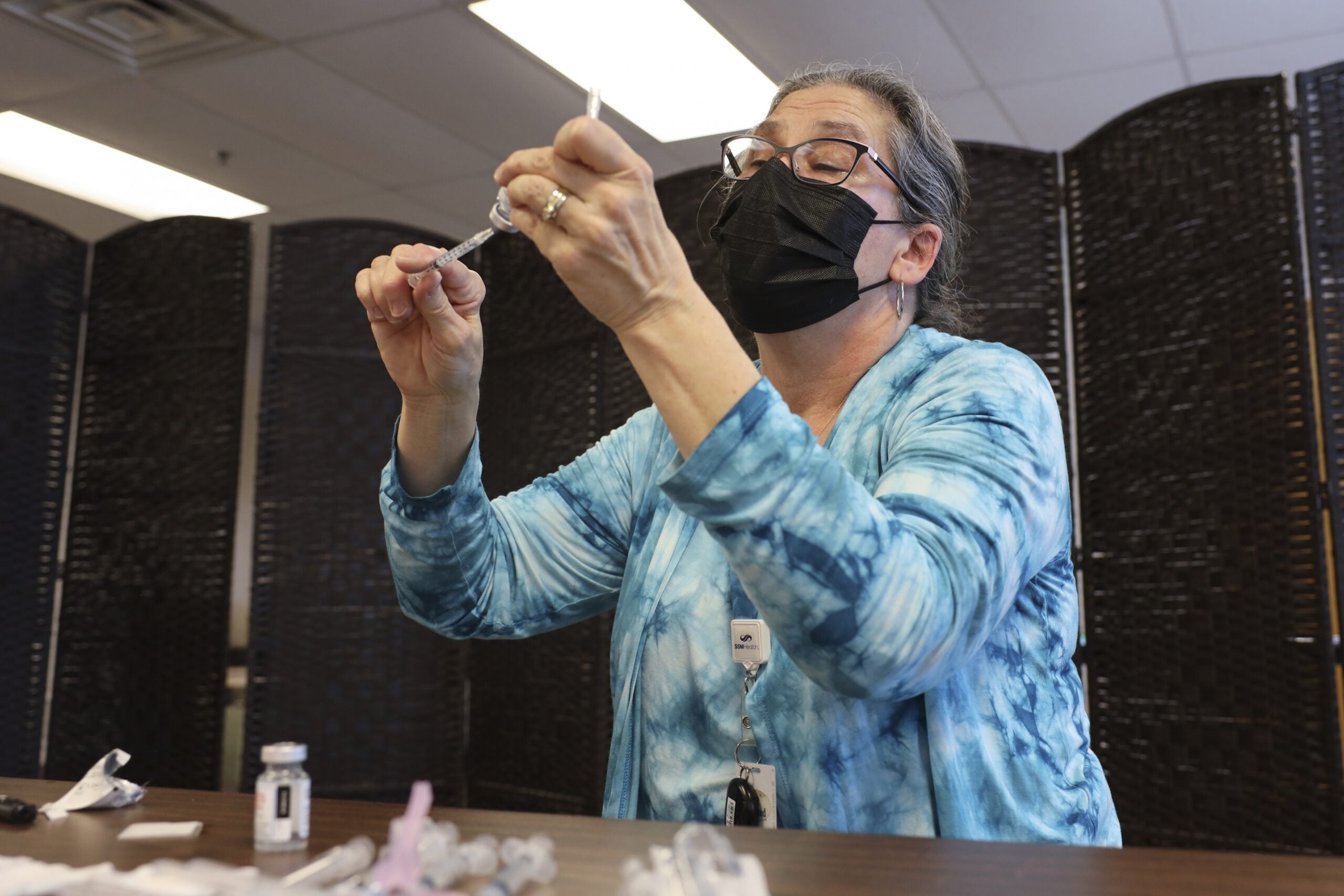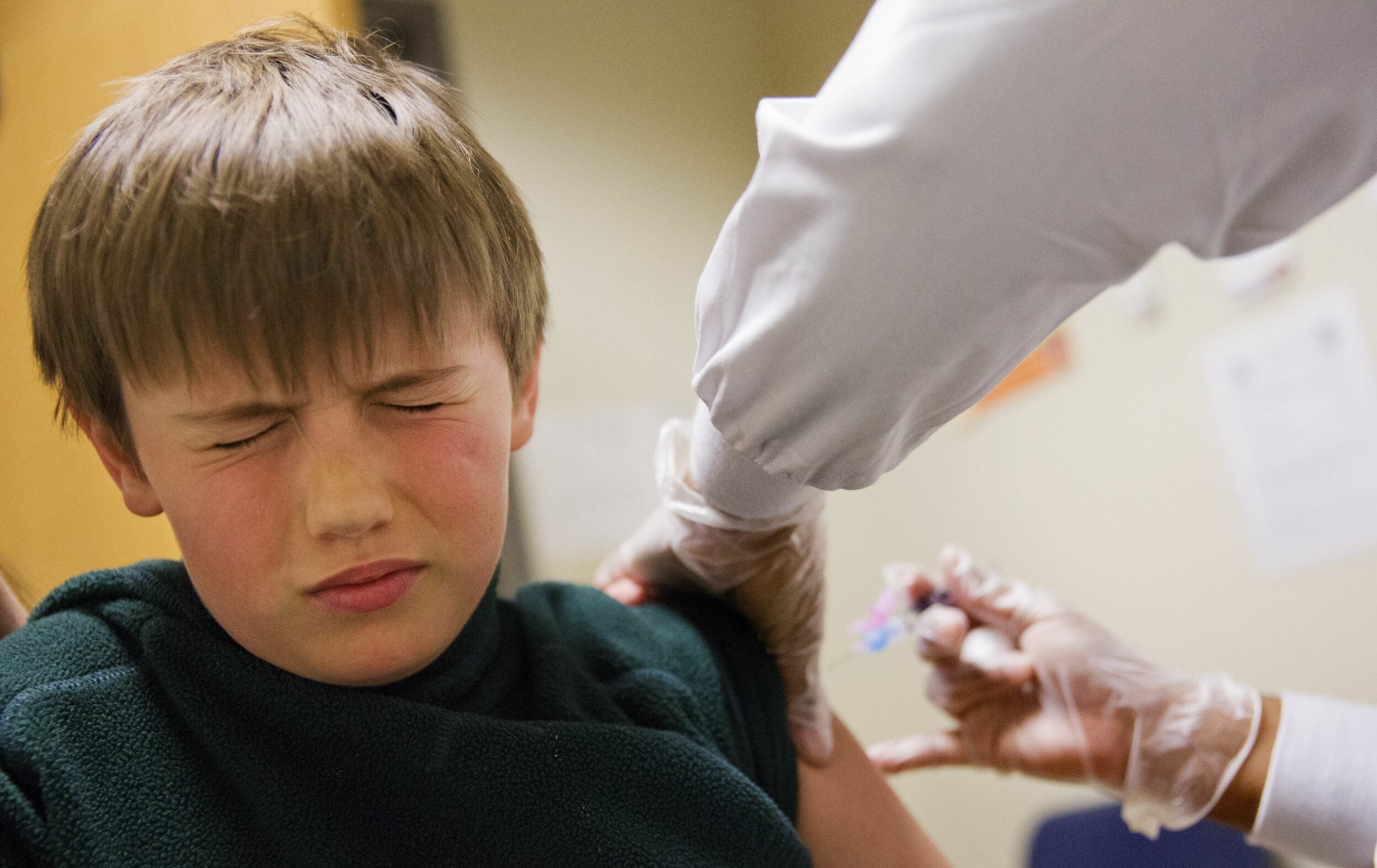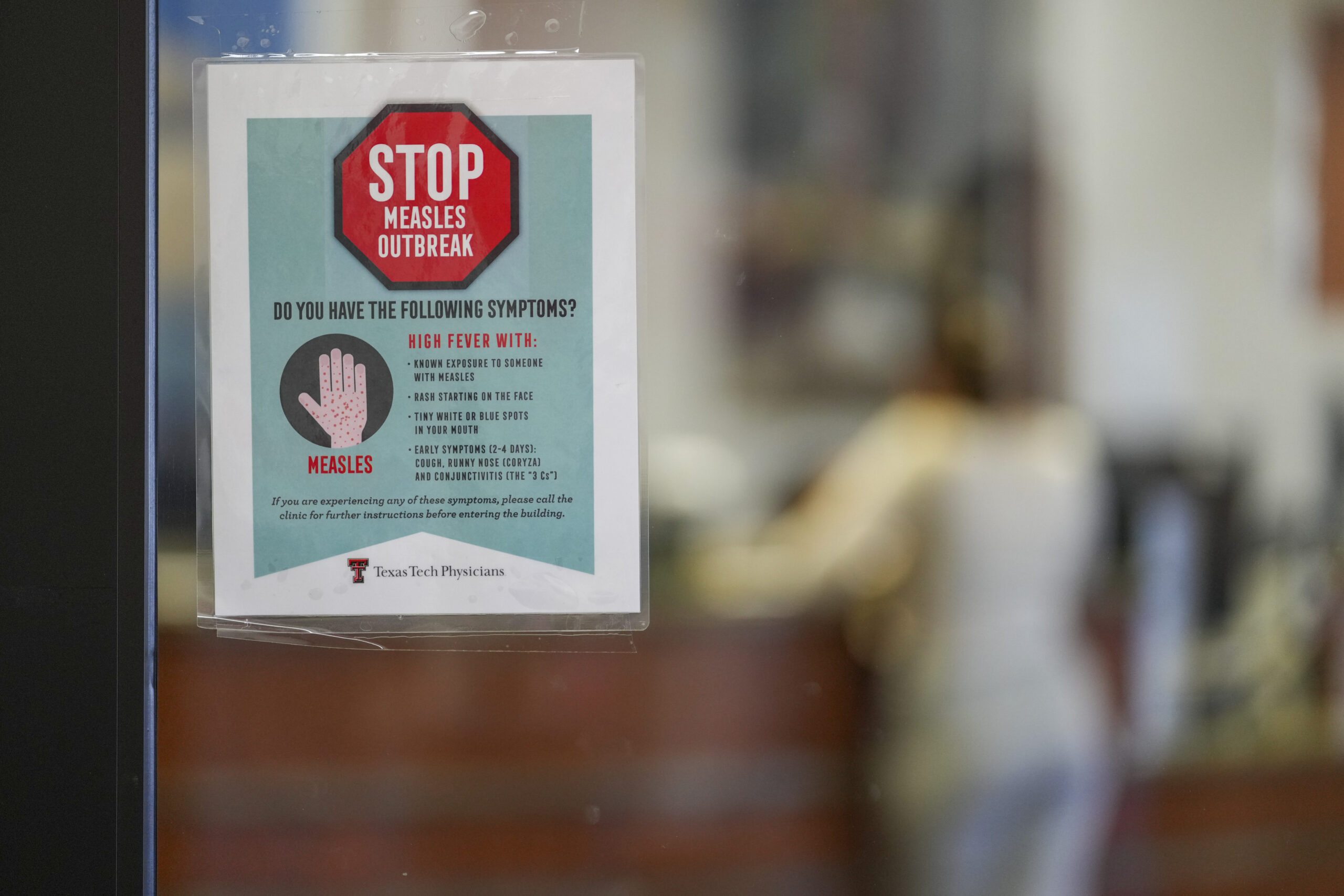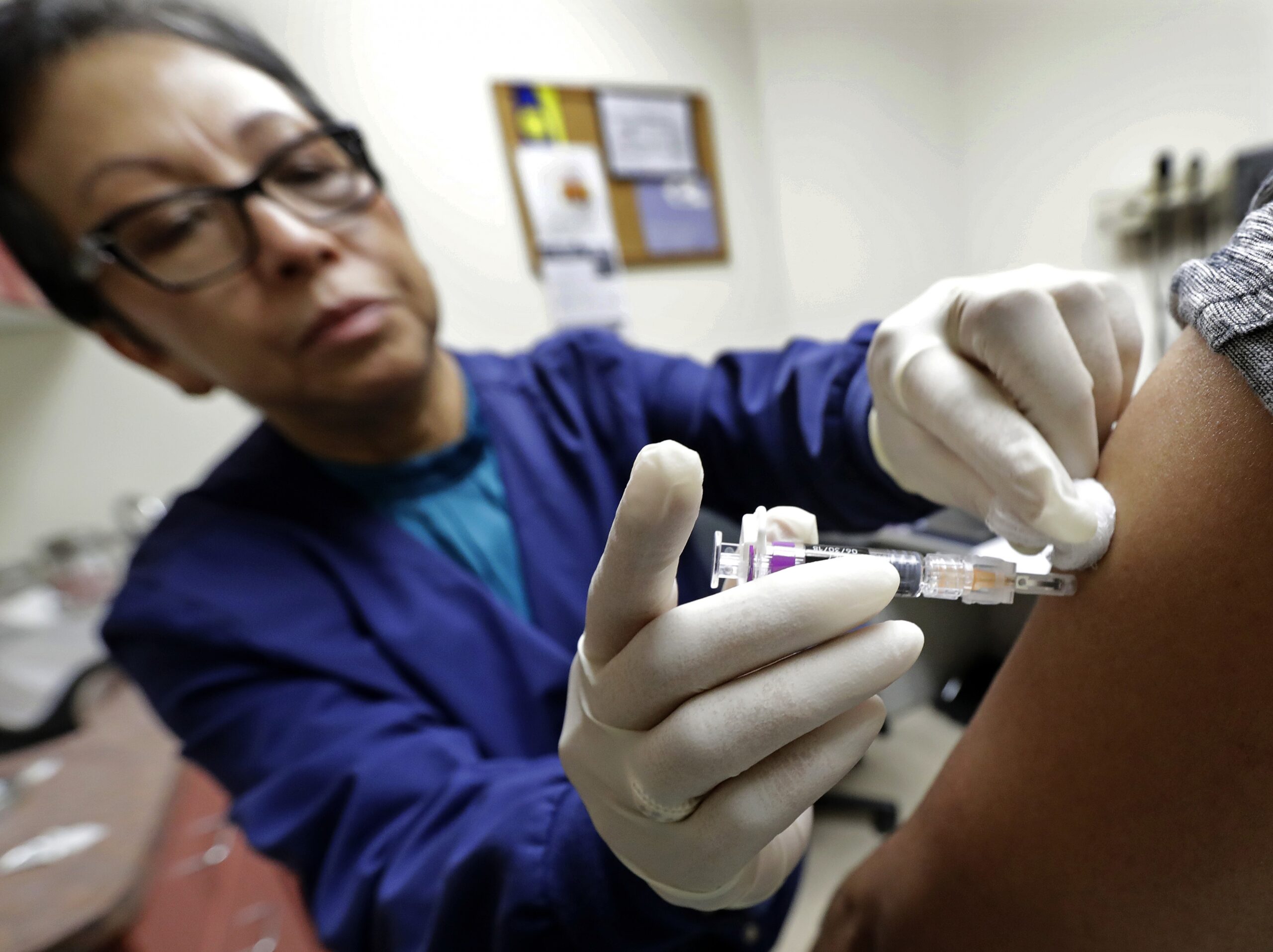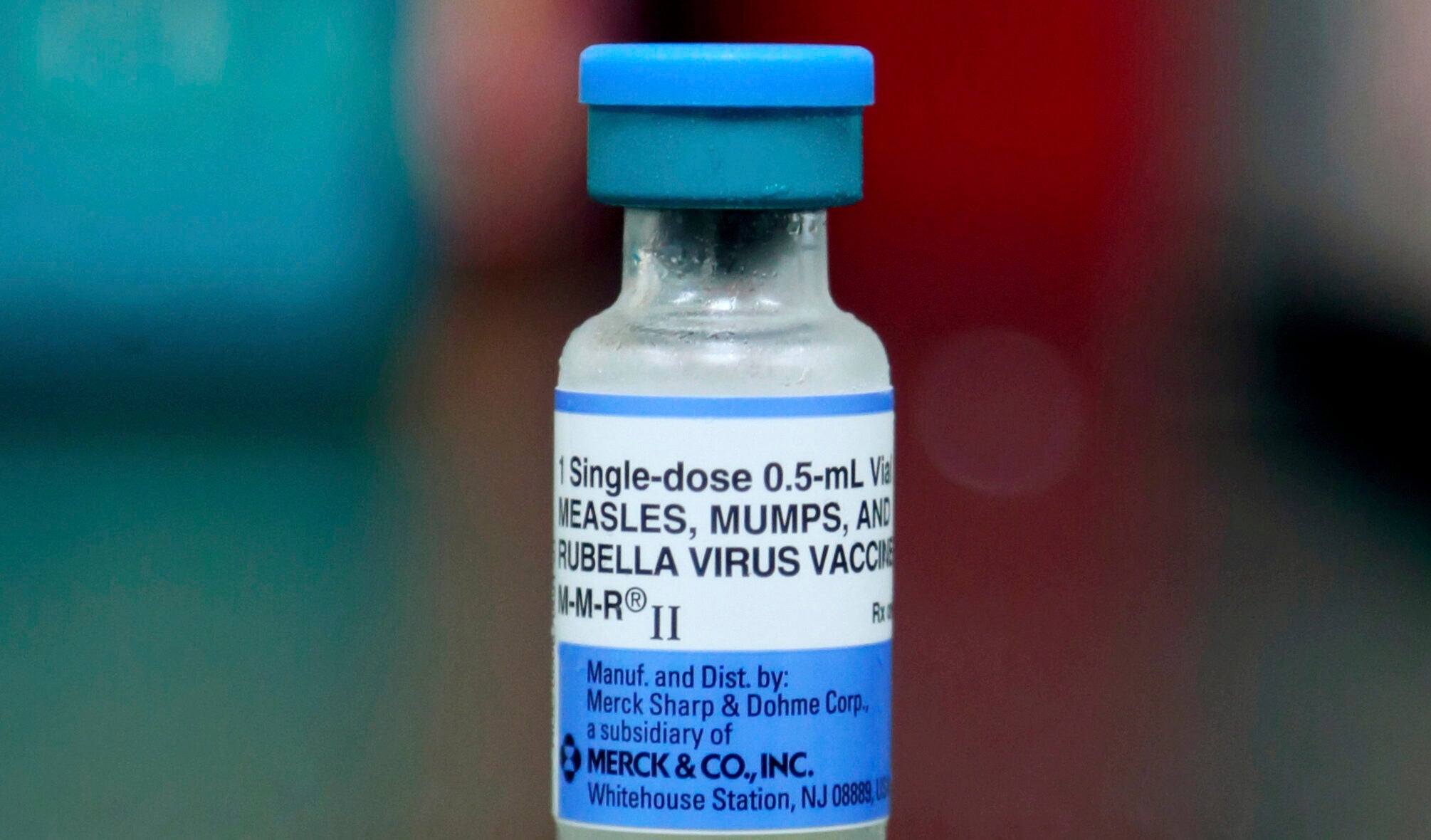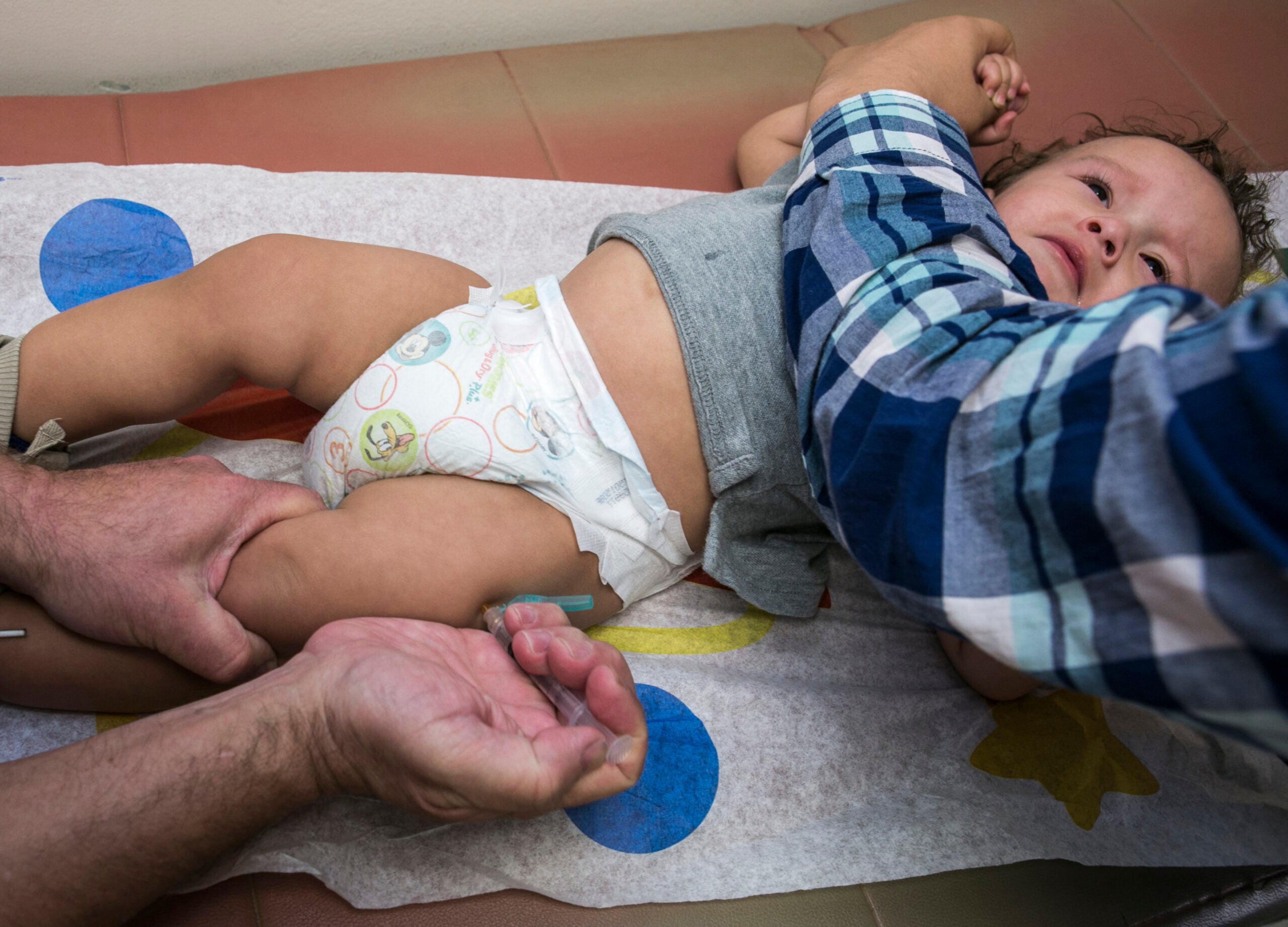Wisconsin vaccine providers reported 2,247 wasted or spoiled doses of COVID-19 vaccine through February, state Department of Health Services records show. That’s less than 0.16 percent of the more than 1.4 million vaccine doses administered statewide during that same period.
The figures track waste only from providers receiving doses from the state — excluding the Indian Health Service, Veterans Administration, state Department of Corrections and other providers that report data directly to the federal government.
Wisconsin Watch obtained the data through a public records request. DHS did not immediately provide information about the reasons vaccine doses were wasted.
Stay informed on the latest news
Sign up for WPR’s email newsletter.
Providers at 167 sites reported losing at least one dose through February, with a median loss of five doses per site.
Ajay Sethi, a public health and infectious disease epidemiology researcher at the University of Wisconsin-Madison, called those figures impressive.
“We’re talking two months of vaccinating,” he said. “Five as a median, that’s like nothing.”
Wisconsin’s biggest reported incident of waste, according to DHS: An Aurora Medical Center pharmacist in Grafton intentionally spoiling more than 500 Moderna vaccine doses on Dec. 24 and Dec. 25. That episode accounted for 22 percent of reported vaccine losses statewide.
The pharmacist, Steven R. Brandenburg, 46, pleaded guilty in U.S. District Court for the Eastern District of Wisconsin in January to two counts of attempting to tamper with a consumer product with reckless disregard for the safety of others after admitting that he removed the doses from a refrigerator. The U.S. Department of Justice says on Dec. 26, 57 patients received vaccinations from the batch, which may have been rendered inert or dangerous.
Aurora Medical Center reported losing 518 doses that week, along with four additional doses two weeks later — its only losses through February, according to DHS.
According to his plea agreement, Brandenburg ascribed to various “conspiracy theories” and was skeptical of “vaccines in general and the Moderna vaccine specifically.” He has not yet been sentenced.
Other Advocate Aurora Health facilities sit near the top of Wisconsin’s list for wasted or spoiled doses — with many of the losses earlier in the vaccination rollout. Those include: Aurora BayCare Medical Center in Green Bay (191 doses); Aurora St. Luke’s Medical Center Covid Clinic in Milwaukee (102 doses); Aurora Medical Center Hartford in Washington County (52 doses).
“Since the isolated incident at Grafton in December and like many other providers who experienced early challenges extracting a sixth dose from Pfizer vials, we’ve significantly improved our efficiency,” Advocate Aurora Health told Wisconsin Watch in an emailed statement.
Advocate Aurora Health facilities have administered more than 138,000 COVID-19 vaccine doses in Wisconsin, according to the statement, which added: “We’ve also implemented a program to review unused doses daily and ensure safeguards to minimize waste.”
Providers elsewhere also reported lost doses, including 140 at HSHS St. Nicholas Hospital in Sheboygan. That happened overnight on Feb. 8 when someone unintentionally left 28 vials of Pfizer’s COVID-19 vaccine outside of a refrigerator, a spokesperson said in an emailed statement.
“HSHS St. Nicholas Hospital firmly believes this situation was a result of human error and not intentional,” the statement said. “The hospital has taken this incident very seriously and used it to improve processes and put additional measures in place to ensure it will not happen again.”
UW Health in Madison reported 98 doses spoiled or wasted at its locations through February.
Spokesperson Tom Russell said “issues with vials or syringes” largely caused vaccine losses, adding that UW Health has adjusted its operations to limit spoilage.
“Out of 58,000 doses received, we have already administered over 90 percent of them with DHS data through February showing only 98 doses not making it into patient arms,” Russell wrote in an email.
Directly comparing Wisconsin’s record on vaccine waste to other states is difficult, because most do not uniformly track the data or publish it in real-time.
Minnesota officials reported just 320 total ruined doses earlier this month out of roughly 1.7 million administered at the time, while Illinois reported 526 lost doses out of the 1.9 million it administered statewide, according to media reports.
In Michigan, nearly 12,000 doses of the Moderna vaccine spoiled in January because of temperature issues while en route from a distributor. The state did not require providers to report doses lost under their care, but available data showed that 1,968 doses were reported wasted through Monday, said Lynn Sutfin, a Michigan Department of Health and Human Services spokesperson.
Vaccines can only be refrigerated for so long, and in some cases patients aren’t ready once the vials are thawed, Sutfin told Wisconsin Watch.
“In addition, reasons for the 1,968 doses of vaccine wastage included the vial being dropped or cracked; syringe malfunction; needle breaking off in the vial; and reconstitution errors,” she said.
Iowa has seen just .04 percent of vaccine doses become unusable through mid-March, an Iowa Department of Public Health spokesperson told Iowa Public Radio.
Some vaccine spoilage is expected, Dr. Kelly Moore, deputy director of the Immunization Action Coalition, told NPR this month. Even states reporting larger waste tallies — such as Tennessee, which lost nearly 5,000 doses in February alone, and Florida, which lost more than 4,000 doses as of Feb. 9 — are reporting losing less than 1 percent of shots administered.
”You want to see some waste, because that means people are paying attention and that real world accidents happen and that they’re being responded to properly,” Moore told NPR. “You just don’t want to see negligence.”
Dee J. Hall and Jim Malewitz of Wisconsin Watch contributed to this report. The story comes from a partnership of Wisconsin Watch and WPR. Bram Sable-Smith is WPR’s Mike Simonson Memorial Investigative Fellow embedded in the newsroom of Wisconsin Watch (www.wisconsinwatch.org), which collaborates with WPR, PBS Wisconsin, other news media and the University of Wisconsin-Madison School of Journalism and Mass Communication. All works created, published, posted or disseminated by Wisconsin Watch do not necessarily reflect the views or opinions of UW-Madison or any of its affiliates.
